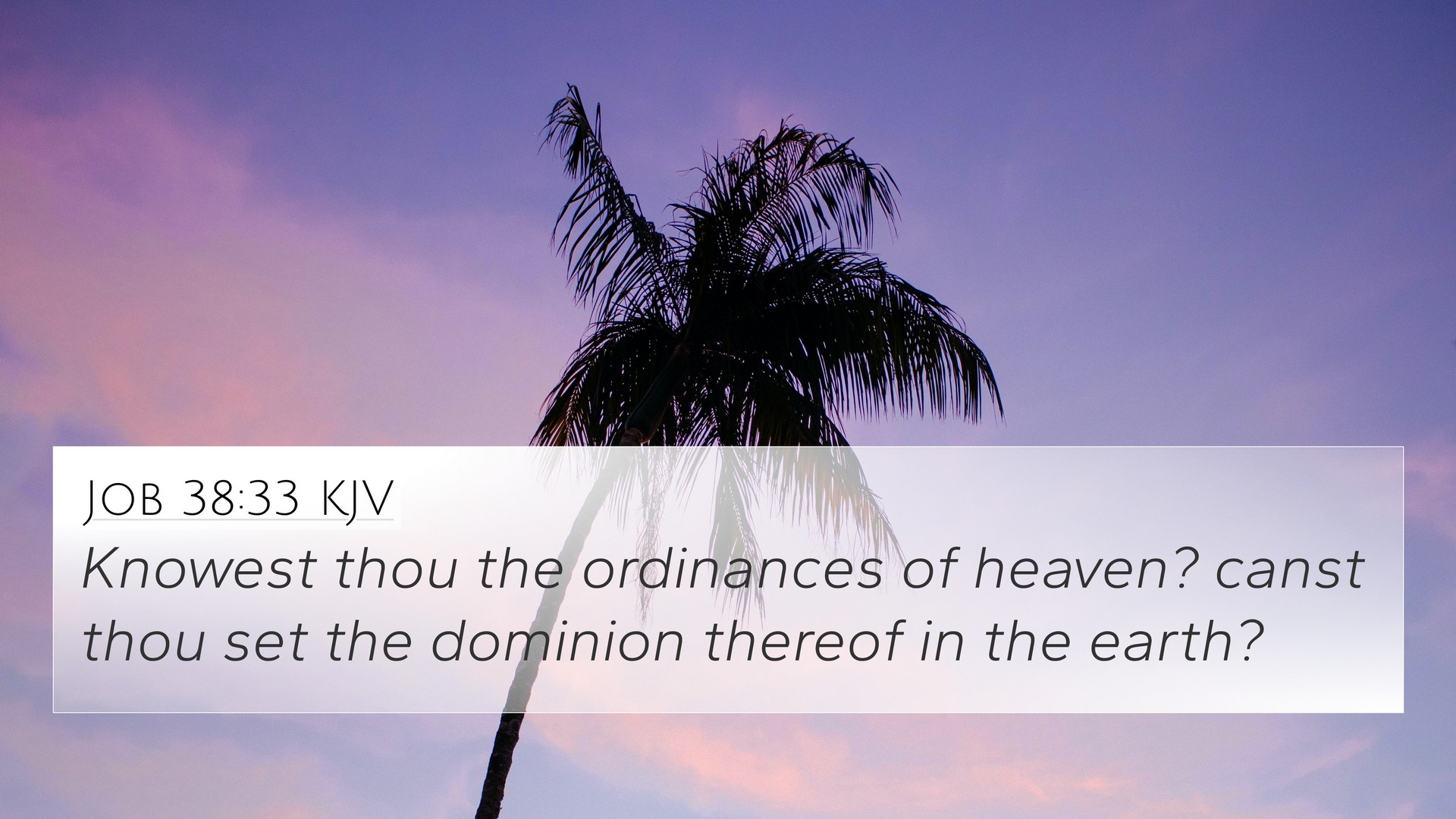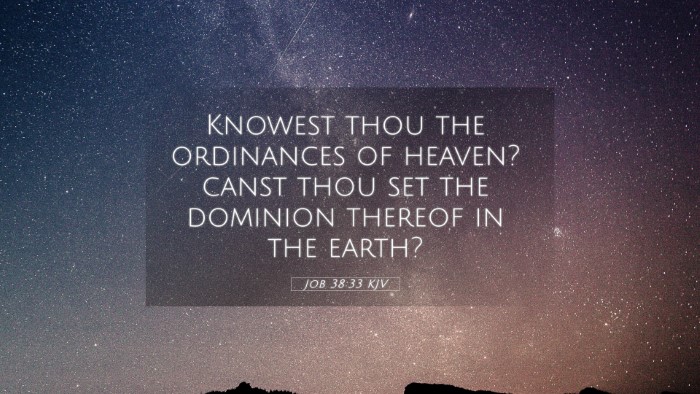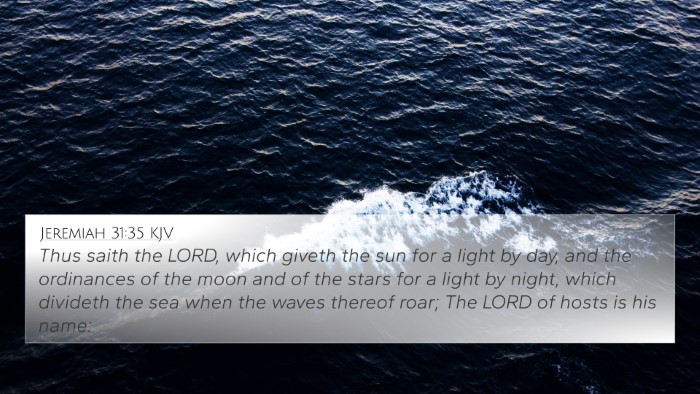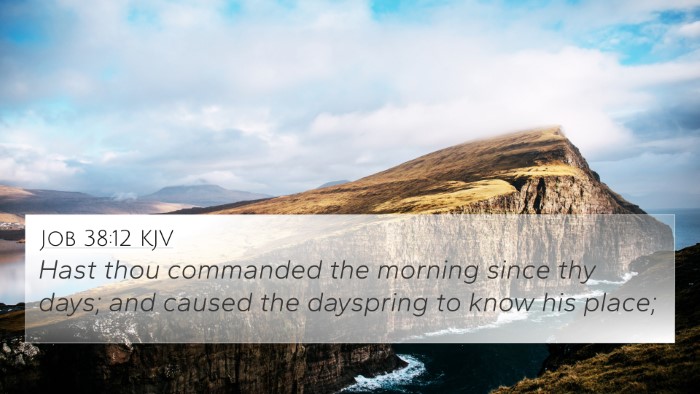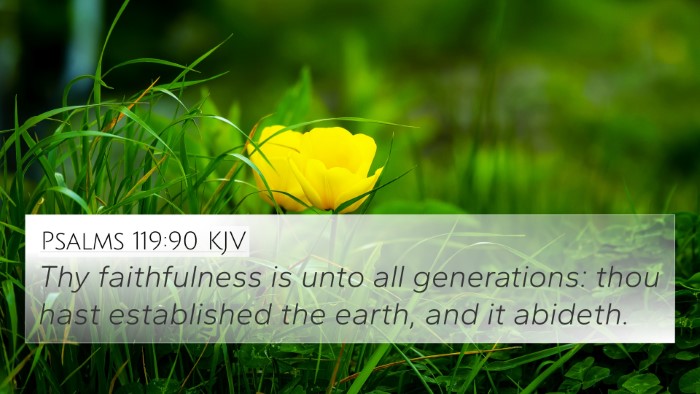Understanding Job 38:33
Job 38:33 states: "Do you know the ordinances of the heavens? Can you set their dominion over the earth?" This verse, as God speaks to Job, emphasizes His omniscience and the limitations of human understanding. Let's explore the insights from public domain commentaries to understand its deeper meaning.
Verse Insights
The verse acts as a rhetorical question meant to highlight God's sovereignty over the cosmos and human inability to grasp the full scope of divine governance.
Matthew Henry's Commentary
Matthew Henry points out that this scripture showcases God's magnificent power and wisdom, affirming that only He is capable of establishing the rules that govern the universe. Job is reminded of his place as a mortal being with limited understanding in contrast to the infinite wisdom of God.
Albert Barnes' Notes
Albert Barnes emphasizes the idea of divine order established by God. He elaborates that the "ordinances" of the heavens symbolize both natural laws and spiritual principles that govern the universe. This verse serves as a lesson in humility, reminding the reader that while they may seek understanding, the complexities of creation are ultimately designed by God.
Adam Clarke's Commentary
Adam Clarke provides an exposition that highlights the question posed by God, indicating that the knowledge of heavenly ordinances is beyond human capacity. He suggests that this verse encourages believers to trust in God's design and authority, especially during times of suffering and confusion, which was the context of Job's plight.
Key Themes
- Divine Sovereignty: The verse illustrates God's absolute control over creation.
- Human Limitations: It serves as a reminder of our limitations in understanding God's plan.
- Faith and Trust: Encourages believers to place trust in God's wisdom rather than their own understanding.
Bible Cross-References
- Psalm 148:1-5: Praises God for His creation and established order in the heavens.
- Isaiah 40:26: Speaks of God’s power in creating and controlling the universe.
- Proverbs 3:5-6: Urges believers to trust in the Lord and not lean on their own understanding.
- Colossians 1:16-17: Declares that all things were created by and for Christ, established under His dominion.
- Job 26:7-14: Job himself reflects on God's majesty as He stretches the northern skies over empty space.
- Romans 11:33: Emphasizes the depth of God’s wisdom and knowledge.
- Job 37:14-16: Calls Job to consider the wonders of God in nature.
Applications in Bible Study
This verse encourages believers to engage in cross-referencing Bible study, allowing for a deeper understanding of the connections between different parts of Scripture. By considering the relationships among verses, we can develop a more robust theological framework regarding God's nature and our relationship with Him.
Tools for Cross-Referencing
Utilizing a Bible concordance aids in identifying connections between verses and themes across the Old and New Testaments. A Bible cross-reference guide can enhance study sessions, providing tools to weave together relevant scriptures for comprehensive understanding.
Methodologies for Studying Scripture
- Comparative Bible Verse Analysis: Juxtaposing similar verses to draw out themes and messages.
- Identification of Thematic Connections: Finding verses related to specific topics to enhance understanding.
- Engagement with Inter-Biblical Dialogue: Exploring how various texts converse with each other enhances comprehension.
Conclusion
Job 38:33 serves as a poignant reminder of God’s unfathomable wisdom and authority over the universe. As we delve into the complexities of God’s creations, we learn not only about His nature but also about our reliance on Him. By utilizing tools for Bible cross-referencing and engaging with other scriptures, we can deepen our understanding of God’s word and its applications in our lives.
